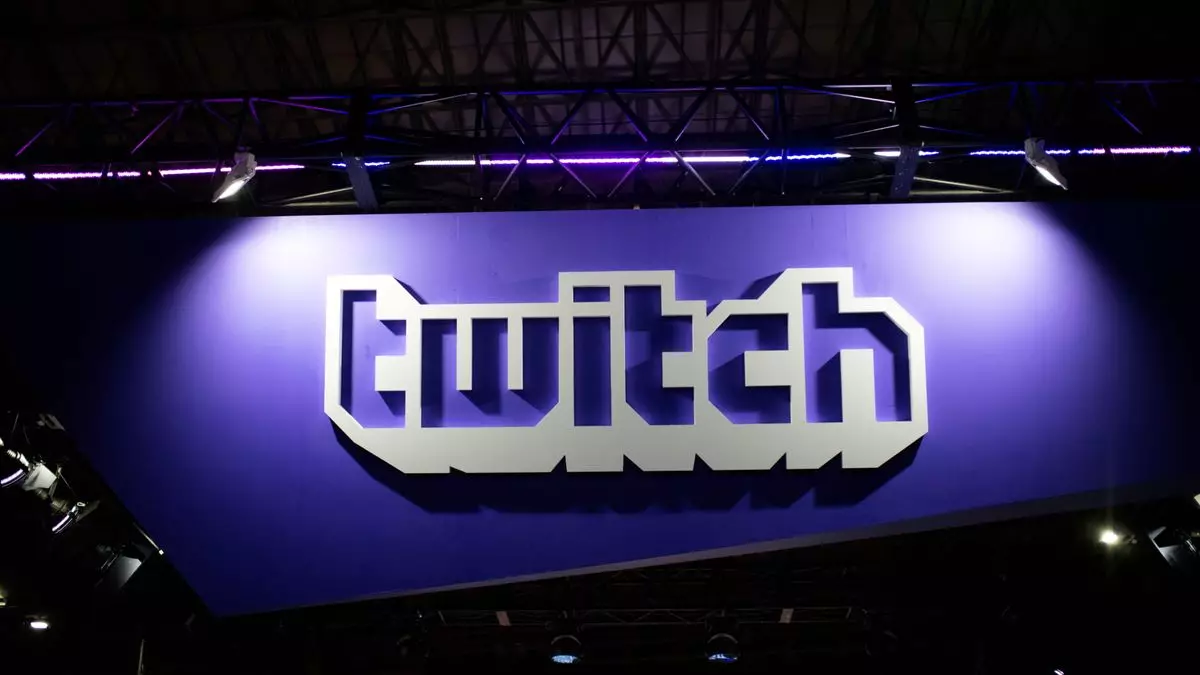Twitch, the leading live-streaming platform, has recently unveiled a new category for its content classification aimed at issues surrounding politics and sensitive social topics. This new development comes at a time when the platform is enduring significant scrutiny following accusations of bias and inadequate enforcement of community standards. The implications of this new category are vast, posing challenges not just for Twitch but also for its diverse streamer community and viewer base.
With the introduction of the “Politics and Sensitive Social Issues” category, Twitch aims to categorize streams addressing crucial themes such as elections, civic integrity, and civil rights. The labeling system is intended to protect viewers, especially younger audiences, from inadvertently engaging with content they might find troubling or inappropriate. This move reflects Twitch’s recognition of its responsibility to its community, yet it raises numerous complexities about what constitutes sensitive content.
Previously, Twitch has managed content that includes themes such as violence, drug use, and sexual content. By expanding this to incorporate political discourse, it is clear that Twitch acknowledges the contentious nature of political discussions. However, the guidelines specifying what qualifies as “political or sensitive” remain ambiguous, leading to more confusion than clarity. For example, does discussing historical events like the Capitol riots fall under general commentary, or is it deemed a sensitive social issue? The vagueness in these definitions can cause a slippery slope where merely discussing political history might be interpreted as political activism requiring a content warning.
The timing of this announcement is notable, coinciding with a turbulent period for Twitch. The community bore witness to the fallout when prominent streamer Zack “Asmongold” Hoyt faced a ban due to incendiary remarks about Palestinians, highlighting a serious gap in the moderation of harmful content. Furthermore, bans placed on Arab streamers following a TwitchCon panel exacerbated perceptions of Twitch’s negligence concerning cultural sensitivities.
In the backdrop of these controversies, Twitch’s management found itself on the defensive. CEO Dan Clancy’s public statement attempts to address the platform’s commitment against racism and discrimination. However, the reality of the situation exposes significant weaknesses in both Twitch’s content policy and the overall enforcement mechanisms available to manage streamers’ conduct. In an environment where political opinions can lead to severe backlash, the new regulations could force Twitch into a position of further scrutiny and accusations of bias or incompetence.
Anxieties around the new classification labels are palpable among the streaming community. Many worry that the classification system will hinder authentic conversations about critical societal issues. Streamers are concerned about their personal experiences becoming categorized as sensitive content, risking their ability to freely communicate relevant discussions about topics like reproductive rights or civil justice.
Moreover, creators face the looming threat that advertisers may shy away from streams that carry content labels. The economic impact cannot be understated, especially for streamers who rely on sponsorships and ad revenue to sustain their passion-driven careers. The precarious balance between promoting free expression and ensuring community protection seems increasingly challenging to maintain.
As Twitch takes steps to refine its content guidelines, it remains to be seen whether this new category will produce the intended effects or exacerbate existing issues. The platform’s endeavor to set explicit boundaries for political discourse may result in a restrictive environment where many creators feel compelled to self-censor, thereby stifling important dialogs.
The ambiguity in what streaming content warrants a label raises significant questions about the platform’s commitment to free speech juxtaposed with responsible moderation. Twitch’s approach might lead some to argue that these guidelines create a safe haven for harmful rhetoric under the guise of sensitive content, particularly in a politically charged atmosphere rife with misinformation.
Ultimately, Twitch’s latest move is but one step in an ongoing negotiation of power between content creation, community standards, and the right to speak freely. The turbulence that this platform faces highlights broader societal debates about expression, safety, and community in the digital age. It is an evolving scenario that will undoubtedly demand further adjustments and clarity if Twitch hopes to navigate these tumultuous waters effectively.

